METHOTREXATE - SUBCUTANEOUS INJECTION
PHONETIC PRONUNCIATION: (METH-oh-TREX-ate)
COMMON BRAND NAME(S): Otrexup, Rasuvo
GENERIC NAME(S): methotrexate/PF
Uses
USES: Methotrexate is used to control severe psoriasis or rheumatoid arthritis that has not responded to other treatments. It may also be used to control juvenile rheumatoid arthritis. Methotrexate belongs to a class of drugs known as antimetabolites. It works by suppressing the immune system. Early treatment of rheumatoid arthritis with more aggressive therapy such as methotrexate helps to reduce further joint damage and to preserve joint function.
How to use METHOTREXATE - SUBCUTANEOUS INJECTION
HOW TO USE: Read the Patient Information Leaflet and Instructions for Use if available from your pharmacist before you start using methotrexate and each time you get a refill. If you have any questions, ask your doctor or pharmacist. If you are using this medication at home, learn all preparation and usage instructions from your health care professional and the product package. Before using, check this product visually for particles or discoloration. If either is present, do not use the liquid. Methotrexate should be yellow in color. If your product has a seal, do not use it if the seal is broken. Inject this medication under the skin as directed by your doctor, usually once a week. Do not rub the area after injection. Before injecting each dose, clean the injection site with rubbing alcohol. Change the injection site each time to lessen injury under the skin. Ask your doctor or pharmacist where you may inject this medication. Do not inject into skin that is red, swollen, or bruised, or into areas with scars/stretch marks. Learn how to store and discard medical supplies safely. The dosage is based on your medical condition and response to treatment. Use this medication regularly to get the most benefit from it. To help you remember, use it on the same day each week. Do not increase your dose or use this drug more often or for longer than prescribed. Your condition will not improve any faster, and your risk of side effects will increase. It may take up to several months before you get the full benefit of this drug. Tell your doctor if your condition does not improve or if it worsens.
Side Effects
Precautions
Interactions
Overdose
Images
Reviews
Faq for METHOTREXATE - SUBCUTANEOUS INJECTION
Methotrexate subcutaneous injection is commonly used for the treatment of rheumatoid arthritis, psoriasis, and certain types of cancers such as leukemia and lymphoma.
Methotrexate works by inhibiting the activity of an enzyme called dihydrofolate reductase, which is involved in the production of DNA and RNA. This ultimately suppresses the immune system and prevents the growth of abnormal cells.
Dosage of methotrexate subcutaneous injection varies depending on the condition being treated. It is usually administered once a week, with initial doses ranging from 7.5 mg to 20 mg. The dosage may be adjusted by the healthcare provider based on the patient's response and tolerance.
Yes, some common side effects include nausea, vomiting, diarrhea, mouth sores, dizziness, hair loss, and fatigue. It may also affect blood cell counts and liver function. It is important to inform your healthcare provider if you experience any side effects.
The onset of action may vary depending on the condition being treated. In some cases, symptom improvement can be seen within a few weeks, while for others it may take several months. It is important to continue the medication as prescribed and discuss any concerns with your healthcare provider.
Methotrexate can interact with certain medications, so it is important to inform your healthcare provider about all the medications you are taking, including over-the-counter drugs and supplements. Some medications, such as nonsteroidal anti-inflammatory drugs (NSAIDs) and sulfonamides, may increase the risk of side effects.
Methotrexate should not be used during pregnancy as it can cause harm to the unborn baby. It is also not recommended during breastfeeding. It is important to discuss family planning options and use effective birth control while taking methotrexate.
Methotrexate subcutaneous injection should be stored in the refrigerator, between 2°C and 8°C (36°F and 46°F). It should be kept in its original packaging and protected from light. Do not freeze or shake the medication.
If you miss a dose, contact your healthcare provider for instructions. Do not double the dose to make up for the missed one. It is important to adhere to the prescribed dosing schedule for optimal effectiveness.
Warning
WARNING: Methotrexate has rarely caused serious (sometimes fatal) side effects. Therefore, this medication should be used only to treat severe diseases caused by an overactive immune system (such as psoriasis, rheumatoid arthritis). Methotrexate has caused birth defects and death in unborn babies. Women must avoid becoming pregnant while using this medication. Pregnant women who have psoriasis or rheumatoid arthritis must not use methotrexate. (See also Precautions section.) If you have kidney problems or excess body water (ascites, pleural effusion), you must be closely monitored and your dose may be adjusted or stopped by your doctor. Methotrexate (usually at high dosages) has rarely caused severe (sometimes fatal) blood/bone marrow problems (decreasing your body's ability to fight infections) and stomach/intestinal disease (such as bleeding) when used at the same time as non-steroidal anti-inflammatory drugs (NSAIDs such as indomethacin, ketoprofen). Therefore, NSAIDs should not be used with high-dose methotrexate. Caution is advised if you also take aspirin. NSAIDs/aspirin may be used with low-dose methotrexate such as for the treatment of rheumatoid arthritis if directed by your doctor. If your doctor has directed you to take low-dose aspirin for heart attack or stroke prevention (usually at dosages of 81-325 milligrams a day), you should continue taking it unless your doctor instructs you otherwise. Ask your doctor or pharmacist for more details on the safe use of these drugs (such as close monitoring by your doctor, keeping the same doses of NSAIDs). In rare instances, this drug may also cause liver problems when it is used for long periods of time. If you are using methotrexate long term, a liver biopsy is usually recommended. Methotrexate use has rarely caused serious (sometimes fatal) side effects, such as lung problems, lung infections (Pneumocystis jiroveci pneumonia), skin reactions, diarrhea, and mouth sores (ulcerative stomatitis). (See also Side Effects section.) Lumps (tumors/abnormal growths) may very rarely appear during methotrexate use. The drug must be stopped and treatment may be needed. Tell your doctor right away if new lumps/growths occur. When used to treat tumors, methotrexate sometimes causes side effects due to the rapid destruction of cancer cells (tumor lysis syndrome). To lower your risk, drink plenty of fluids unless your doctor directs you otherwise. Also, your doctor may prescribe an additional medication. Tell your doctor right away if you have symptoms such as irregular heartbeat, low back/side pain, signs of kidney problems (such as pink/bloody urine, change in the amount of urine, painful urination), or muscle spasms/weakness. When this medication is used with radiation treatment, it may rarely increase the risk of tissue and bone damage. Discuss the risks and benefits of your treatment with your doctor.
Disclaimer
IMPORTANT: HOW TO USE THIS INFORMATION: This is a summary and does NOT have all possible information about this product. This information does not assure that this product is safe, effective, or appropriate for you. This information is not individual medical advice and does not substitute for the advice of your health care professional. Always ask your health care professional for complete information about this product and your specific health needs.
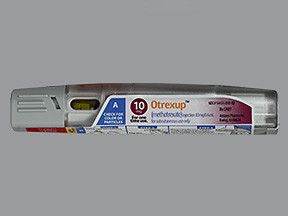
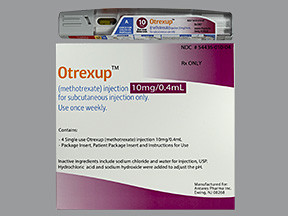
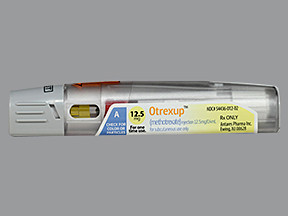
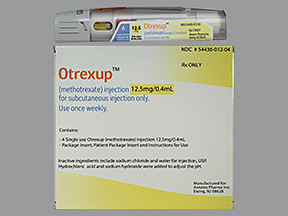
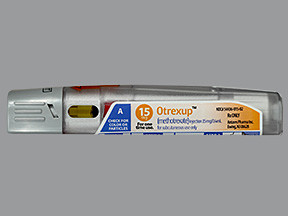
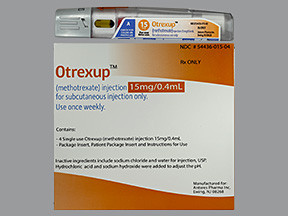
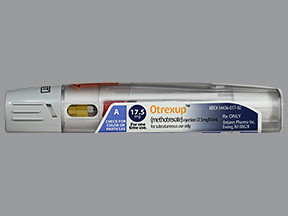
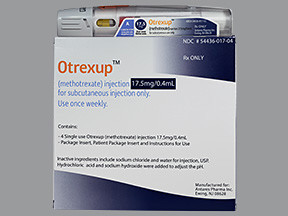
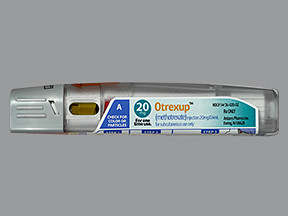
No Reviews Yet